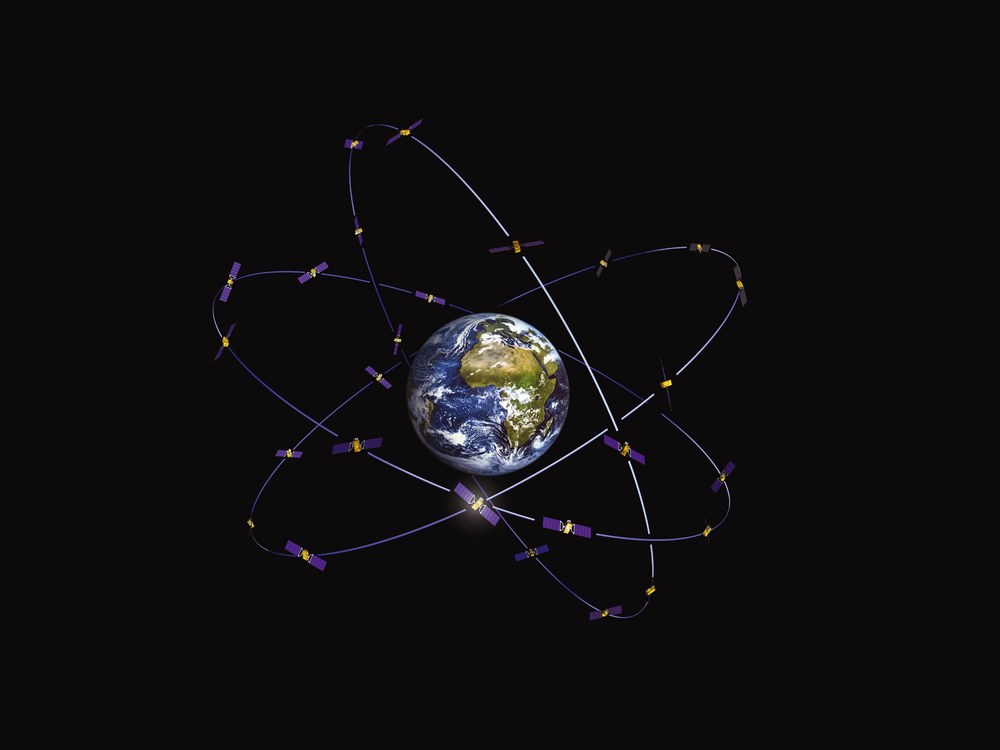Galileo
High accuracy in determining location and time
Galileo consists of a global network of 24 satellites. The satellites are evenly distributed in three orbits located approximately 23,000 kilometres above Earth’s surface. Two control centres in Germany and Italy ensure that Galileo works reliably and with high precision around the clock. The accuracy of positioning offered by Galileo is higher than that of any other satellite navigation system.
Galileo in everyday life
As part of Galileo, various services are provided to fulfil different tasks. For example, the Open Service provides signals for positioning and navigation to all citizens. Over a billion smartphones that support positioning via Galileo have already been sold.
In addition, the Public Regulated Service offers greater reliability and resilience for public authorities including the police, emergency services and critical infrastructure operators such as power grid operators. This also indirectly benefits all citizens.
European cooperation for a global navigation system
The European Commission (EC) has overall responsibility for Galileo. It funds the development of the system, its operation and the development of technologies for the next generation. The European Space Agency (ESA) is responsible for developing the Galileo system in space and on the ground. ESA also provides technical support and advances the development of a new generation of satellite navigation systems. The European Union Space Programme Agency (EUSPA) in Prague provides security accreditation for all services and is responsible for reliable operation.
The German Space Agency at DLR represents Germany's interests in the decision-making bodies of the European Union (EU), the European Space Agency (ESA) and the GSA. It supports the work of the Federal Ministry for Digital and Transport (BMDV), which is in charge of all Galileo matters in Germany. BMDV also promotes projects for the development of new navigation applications and services at universities, research institutes and in industry. The funding required for this is provided by the Federal Ministry for Economic Affairs and Climate Action (BMWK).

